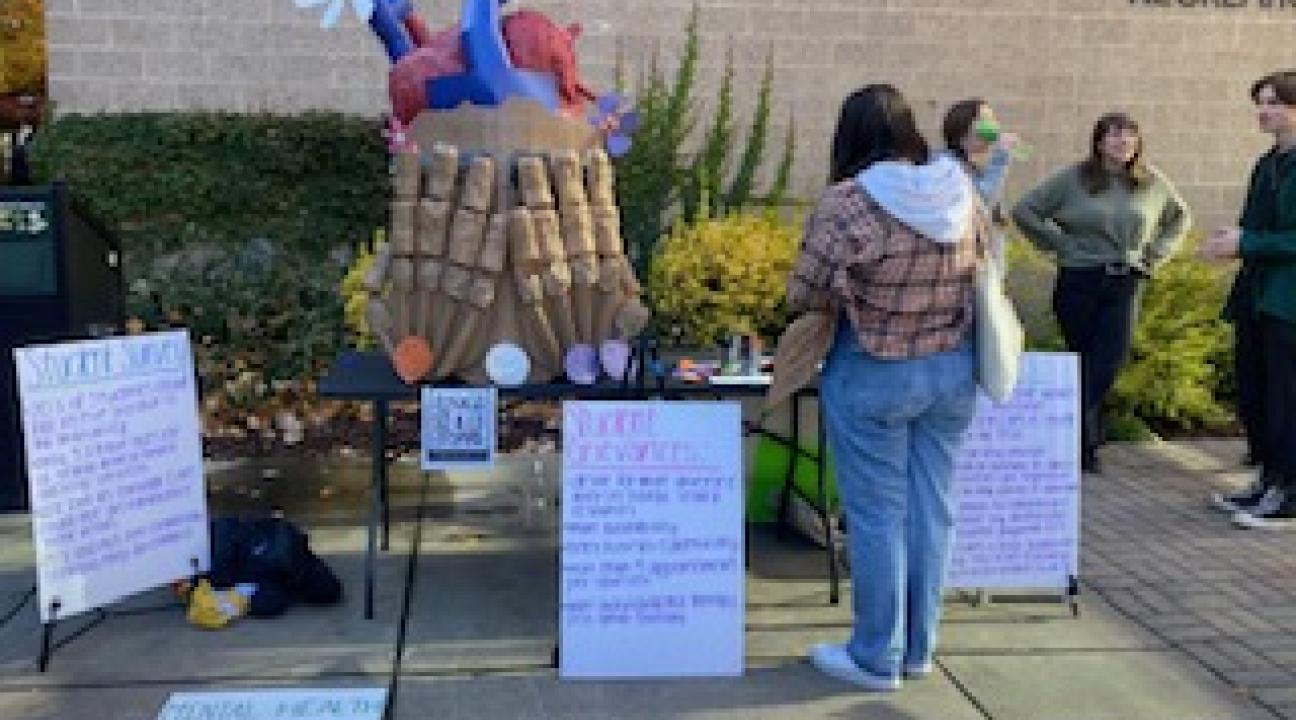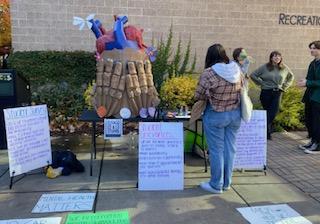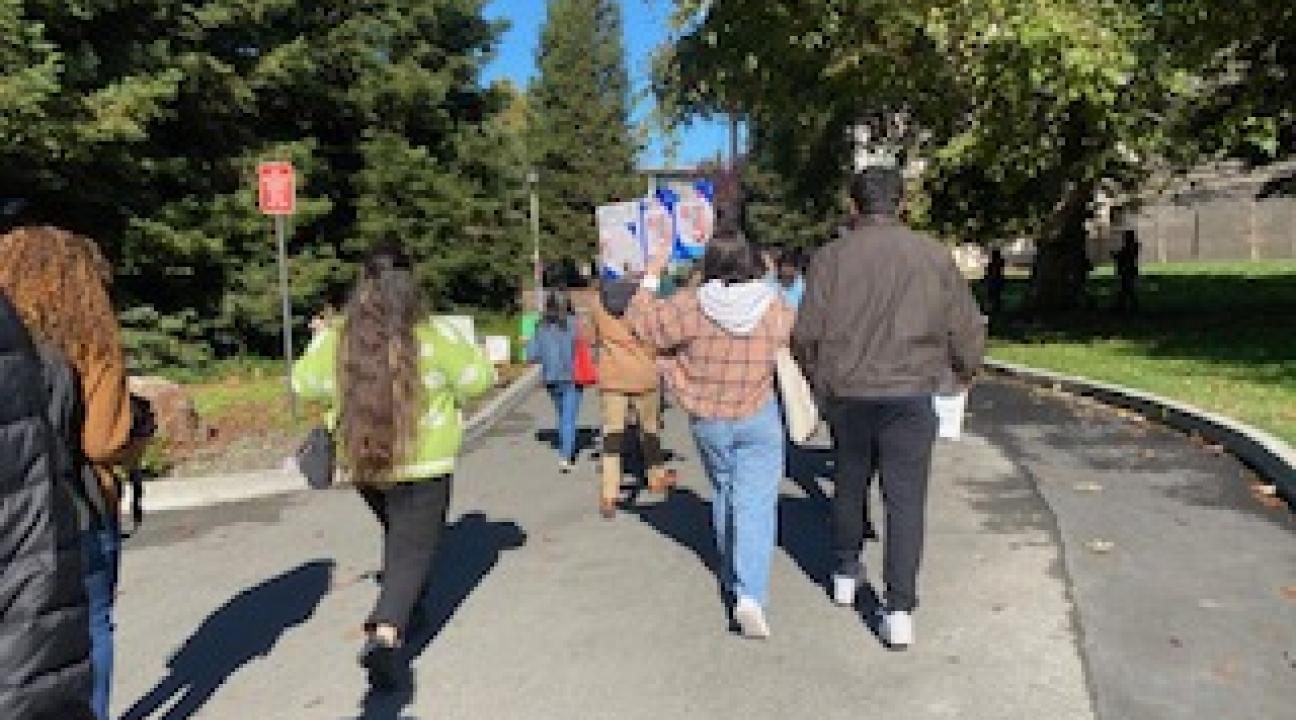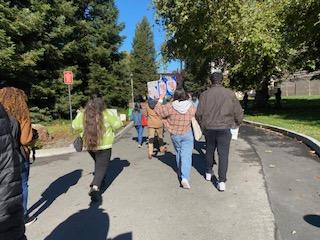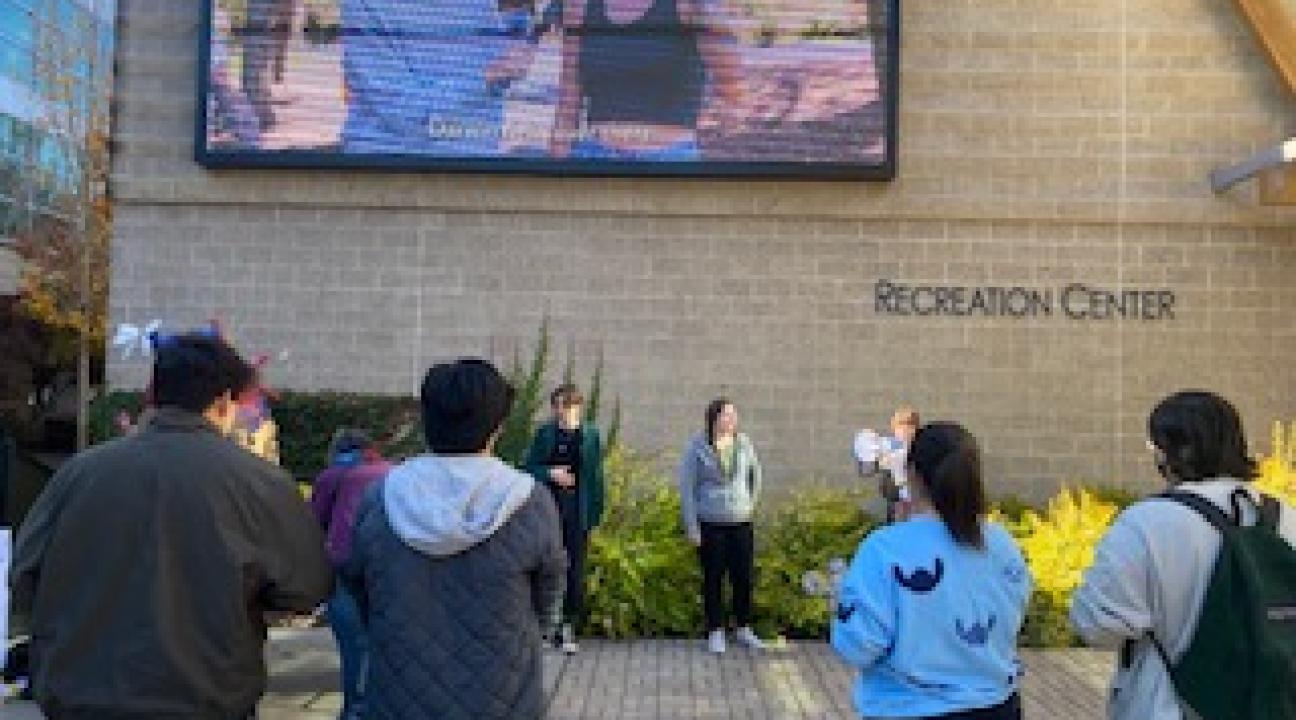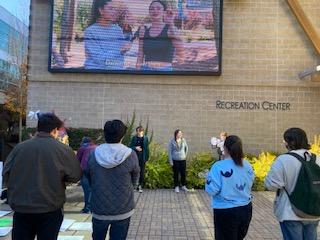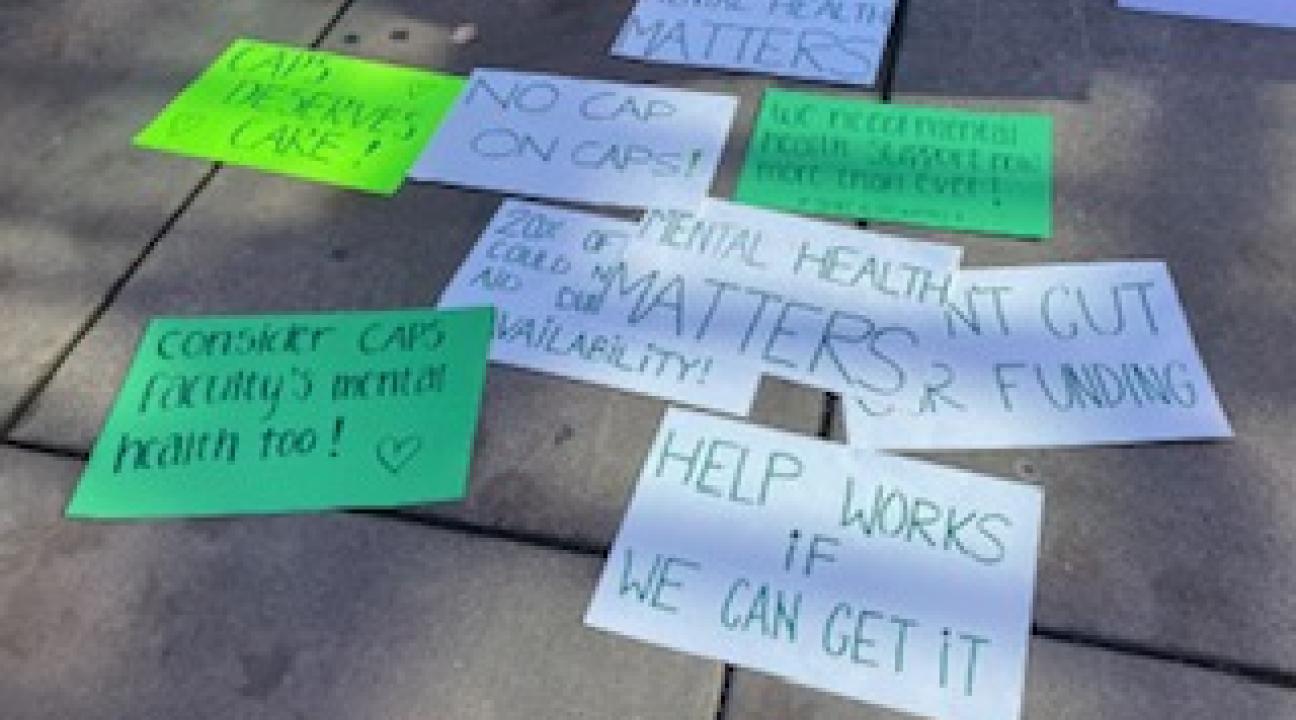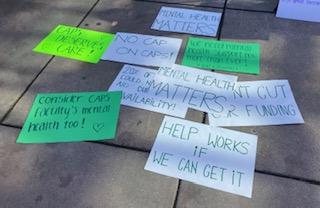CAPS and SSU Students Deserve Care
As a Sonoma State student who has dealt with mental health issues for most of my life and has experienced the difficulties with access to mental health care, having an accessible option for Sonoma State regardless of income is something I feel is incredibly important. Getting our community the assistance and support with their mental health now can have a huge impact in their lives down the line, and cultivate a healthier experience at Sonoma State where students and faculty alike know and feel supported in whatever struggles they may face. As mental health issues rise across the world, regardless of age or background, it is important more now than ever to work together as a community to provide safe spaces and care for ourselves, our peers, and the world around us by advocating for accessible care for all. This is why I attended the March for Mental Health.
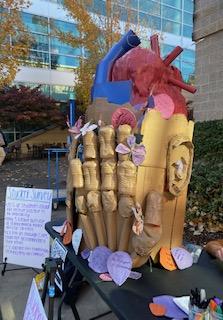
Interactive art piece created by
Emma Anzilotti, Ernesto Sanchez,
and Rianna Reyes. March
attendees wrote messages around
mental health on petals and added
them to the sculpture.
“It wasn't until my final semester, when I had called [CAPS] after hours, mid-panic attack, that I was finally provided consistent, scheduled support,” Carly Coughman told students gathered at the March for Mental Health during the open-mic portion of the event. Coughman is not alone in experiencing mental health issues; at least 60% of college students across the nation met the criteria for at least one mental health problem during the 2020-2021 school year. But she is relatively alone in receiving this level of support, as one of the only 170 Sonoma State students Counseling and Psychological Services (CAPS) can accommodate for individual therapy during each semester, due to lack of funding. This is why Coughman, Mackenzie Brumm, and Ian Craigie decided to lead a march for CAPS and for student mental health. These Hutchins seniors chose to highlight the disparity between need and access as a part of their senior project, and collaborated with Emma Anzilotti, Ernesto Sanchez, and Rianna Reyes to incorporate the latter group’s mental health inspired sculpture.
In response to the lack of access and perceived lack of response from Sonoma State’s administration, the Hutchins group and fellow students have demands. They would like more availability of appointments, more appointments allotted to each recipient, a prioritization of individualized therapy over group therapy, better outreach and accessibility around information on how to get an appointment and what services are available, and more diverse and intersectional staff and resources. These demands were expressed at the march, which led students and faculty through the main parts of campus, with cheers like “CAPS needs care” and “Mental health is our right.” The march culminated in an open mic, and an interactive art installation where attendees could write messages about mental health and add them to the sculpture created by Anzilotti, Sanchez and Reyes.
I feel strongly that Sonoma State students and faculty deserve to receive mental health care, especially if that care can be provided to them at a low cost on campus. I hope that the March made a difference.
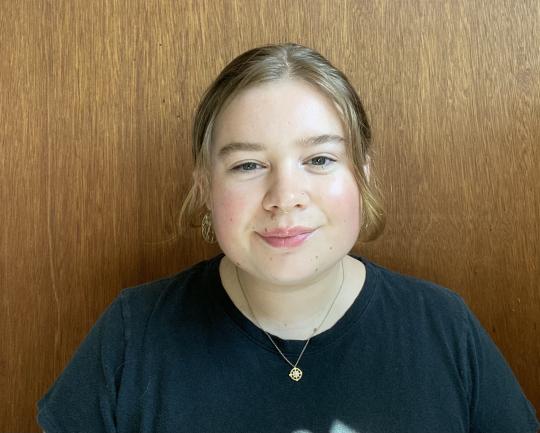
Author: Meryl Wenger


